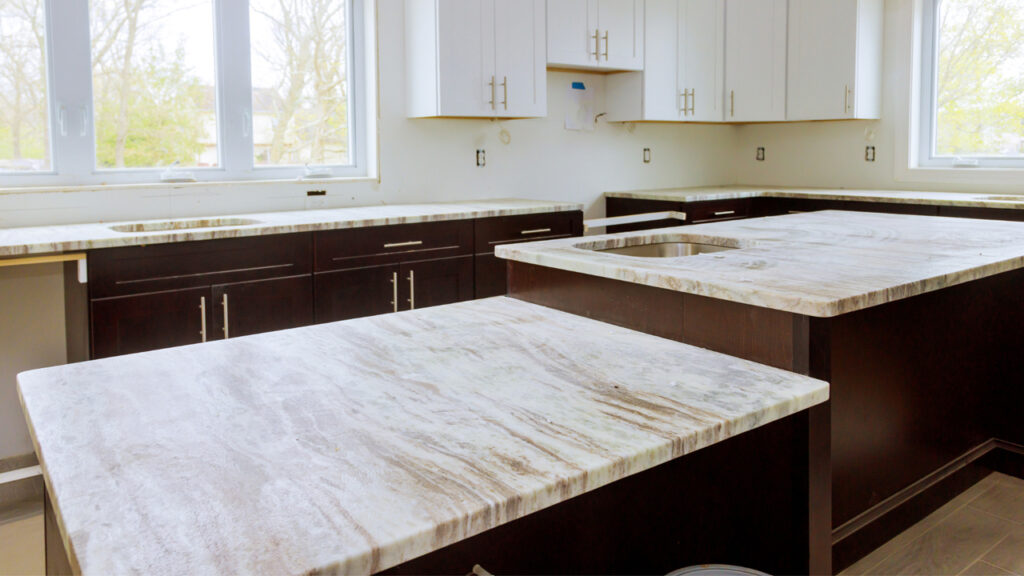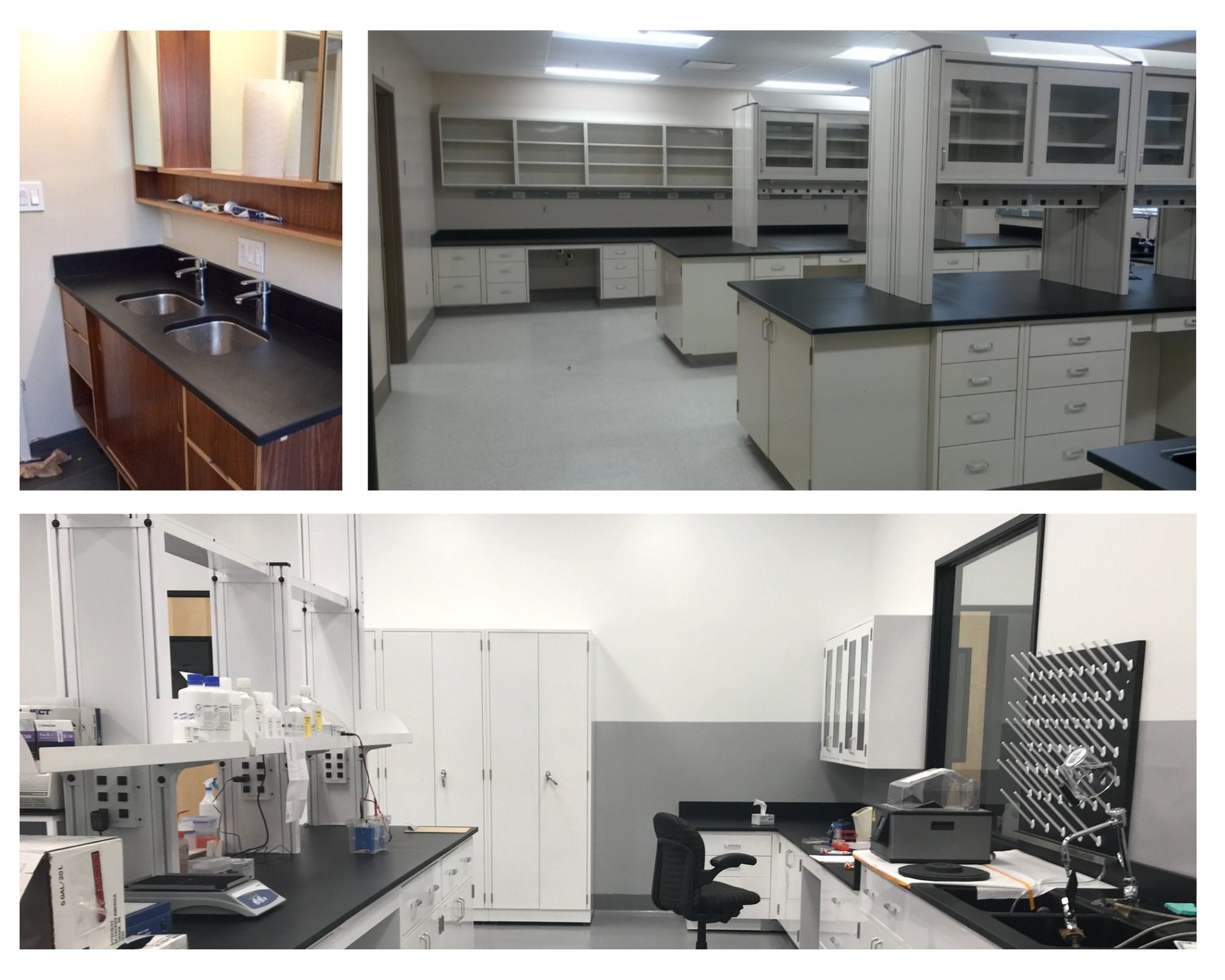It isn’t easy to imagine a countertop that is as perfect as phenolic resin countertops. Because the surface lacks pores, any material spilled on it will almost be impervious. Although it can withstand almost anything, it still needs maintenance to stay in good condition.
The antibacterial properties of resin countertops make them ideal for regular use. Cleaning phenolic resin countertops is simple and effective as long as the right tools are used.
With frequent cleaning, your resin countertop will remain in good condition for years to come!
What are Resin Countertops?
Phenolic resin tops feature a high level of durability, high heat and moisture resistance, and moderate chemical resistance due to their synthetic polymer—and a solid surface composite panel. Not to mention, epoxy resin countertops are also easy to clean.
Many people are familiar with the hard phenolic resin countertops found in chemistry labs at high schools and universities, as well as a wide range of industrial processing laboratories, agricultural facilities, photographic studios, medical centers, and healthcare laboratories.
In addition to being extremely strong and durable, epoxy resin tops provide the highest level of chemical resistance and they are capable of withstanding high temperatures.
Numerous types of laboratories use this right countertop material, including university labs, research laboratories, hospitals, clinics, pharmaceutical laboratories, biological laboratories, and genetic laboratories.
What NOT to Use When Cleaning Resin Countertops?
When cleaning epoxy resin countertops, you should avoid using abrasives. The surface of the phenolic resin tops will become dull if you use abrasive cleaners or scrubbing pads. This will require much earlier replacement than had been intended. Wax and wax-containing polishes should also be avoided.
On the other hand, all-purpose cleaners and scouring pads are among the most commonly used.
Heavy equipment should not be dragged around, and sharp objects and metal tools should not be made contact with the countertop. If storing chairs on top of a work surface, ensure that they are covered with cardboard to prevent damage. The phenolic resin surface must also avoid being in contact with rubbing alcohol.
Spills should be cleaned up as quickly as possible to prevent staining, drying, and corrosion. It is also important not to place dry ice or liquid nitrogen on countertops or sinks.
How to Clean Resin Countertops?
Following these guidelines will ensure your lab’s work surfaces and casework maintain an aesthetic appearance, regardless of whether you are a facility owner, manager, custodian, or lab end user.
It would be best if you always cleaned up spills immediately on your phenolic resin countertop. Splashes and splatters from toxic or corrosive agents should be cleaned up right away, despite being chemical resistant.
A soft cloth and a soap and water solution can be used to remove residues left behind by dragging metals across phenolic resin, known as marring. You can use steam cleaning or acetone when removing organic compound stains in more challenging cases.
If spills or leaks occur during regular use, wipe them up immediately with a towel or rag. Besides being highly absorbent, a chamois cloth is also gentle to epoxy and phenolic resin surfaces. It is recommended that you use mild soap for dishwashing and most household cleaners that do not contain abrasives on a daily basis.
Alternatively, you can use paint thinner or acetone in the event of a major spill. By doing this, you’ll make sure the epoxy resin isn’t contaminated. But take precautions with these two cleaners because they can cause fumes.
What Happens if Resin Countertops are Not Cared for Properly?
You should consider the material you used for your countertops and the work you do in your lab based on how much wear and tear they will endure. Even though resin countertops are rarely damaged, they sometimes need to be replaced due to unforeseen circumstances.
Fractures
Liquid nitrogen and dry ice are usually responsible for these types of breakages. Using liquids and biological specimens in labs can make these places an ideal breeding ground for fungus and bacteria.
Additionally, they can cause epoxy resin and phenolic resin surfaces to lose their physical integrity.
Constant Scratches
Metals with harder edges, abrasive materials, and heavy objects dig deeply into epoxy resin and phenolic resin surfaces to cause deep scratches. It is difficult to mask the discolorations they cause on phenolic resin countertops.
These factors can affect the fungi, moisture, bacterial, and chemical resistant properties of these surfaces.
Chemical Spots and Stains
The appearance of a surface may be lightened or bleached by chemicals left to dry on it, but they are also capable of roughening and even cracking.
If there is too much damage from chemical stains, it may be necessary to replace the work surface because these are permanent, just like scratches.
Fire Exposure
The strength of these phenolic resin countertops can be compromised if they are exposed to fire or high heat temperatures exceeding 400°F for an extended period of time.
How Should Resin Countertops Be Maintained?
To provide the most excellent work area possible, it is vital to maintain the appearance and extend the life of solid surface countertops and sink materials.
To maintain the original finish of a phenolic resin surface and to help ensure a safe, uncontaminated working environment, it is recommended that you perform a monthly close inspection of all surfaces, sinks, and joints.
Countertops can last long if they are adequately cared for and maintained throughout their lifetime. Whenever there are spills or chemicals on the surface, wipe them up right away with acetone or household cleaners, and periodically apply finish oil to revive the finish of the epoxy resin or phenolic resin.
Modern epoxy and phenolic resin laboratory countertops must be durable and long-lasting. You will be able to reap the benefits of your investment over time if you use, care for, and maintain it properly. You may extend their use for several years by taking proper care of them.
Choose the Right Phenolic Resin Countertops for Your Laboratory
Whether you are looking for phenolic resin countertops, ready-made or customized benches, and other laboratory furniture, we are the best place to go.
Our team can design, build, and install lab furnishings and tables, custom fit to meet your needs. To get a free quote, fill out our online form or contact us at 800-476-5228 at ResinTops.net today!


